The edge of our existence: A particle physicist examines the architecture of society
By Yangyang Cheng, December 7, 2020
A statue of Qu Yuan in a dragon boat on one of Singapore's central streets, as a display for the Dragon Boat Festival, a traditional Chinese holiday.
I grew up behind a wall. The university my parents worked at, like most of its peer institutions in China, had its campus surrounded by a two-meter-tall stretch of bricks and concrete. There were four entrance-and-exits. North gate was the oldest. West gate was the grandest. South gate stood humbly in a corner. East gate was the one closest to our apartment.
The wall with its guarded gates divided my world in two: xiaonei, inside the school, and xiaowai, outside the school. The terms applied not only to buildings and roads, but also to people. I knew who among my friends were xiaonei, which meant their families were like mine, and who were xiaowai, the connotation always carrying a tint of condescension. If a xiaowai child happened to misbehave or do poorly on an exam, their outsider status offered a ready explanation.
One summer afternoon in middle school, I ventured out the east gate for ice cream and noticed a new addition to the wall, a metal box with the words “condom dispenser” printed on the side. With a thin slot on the bottom, the machine resembled a mailbox. For a long time after, I thought condoms were made of paper, like little envelopes.
My mother was incredulous when I told her of my discovery. Which side of the wall was the box attached to, she asked. The exterior side, I said. My mother let out a sigh of relief. The scandalous machine belonged to xiaowai, another indictment on a world full of vices she had been trying so hard to protect me from.
I had set my eyes on graduate programs in the United States, where a full tuition merit scholarship in the sciences would be my ticket out of China. My mother hoped I would choose a more “feminine” profession, like teaching English at a local school. Nevertheless, she paid close attention to profiles of American universities whenever they appeared in the media. Images of their campuses confounded her: Walls were nowhere to be seen.
That cannot be safe, my mother said. She attributed the faulty design to the laissez-faire attitude of Americans. Perhaps, she reasoned, in a rich, developed country like the United States, everyone could go to university.
An academy without walls represents the spirit of open inquiry, I said. I resented the walls. To my adolescent self, they symbolized the restrictions in an authoritarian society. I could not wait to start a new life in a free country.
My plane touched down at O’Hare on August 22, 2009. A fellow Chinese student, several years ahead, picked me up at the airport. As we drove towards campus on the South Side, he pointed out the window and offered a word of warning, “Do not go past this street.”
I stared in that direction. All I saw was the darkness of night.
A few weeks later during orientation, a classmate from upstate New York raised his hand. “We all read the news,” he said. “Are there any hard boundaries around here we should know about, that we should not go across?”
The department chair smiled. “To the east, there is the lake.” The chair taught general relativity. The theory pioneered by Albert Einstein says the universe has no edges, only curves.
Sometimes, walls do not appear in clay or concrete. They take shape through uniformed officers and flashing blue lights, through property deeds and zoning policy, through food deserts and underfunded public schools. In my first few years in Chicago, the sight of a police car made me feel safe. It took me a long time to realize that the sense of security I felt was a result of privilege. Under slightly different circumstances, had I been of a darker shade or without the right papers, the protection I took for granted would have been a source of terror.
In her 2018 memoir Becoming, Michelle Obama revealed that “despite having grown up only a few miles away,” she had never set foot on the University of Chicago campus until her late 20s, when she was looking for job opportunities as a Princeton- and Harvard-educated lawyer.
“The University of Chicago was an elite school,” the former First Lady writes. “And to most everyone I knew growing up, elite meant not for us.”
~
I am a particle physicist. My profession examines matter at the smallest scale in search for answers to some of the biggest questions: where the universe came from and where it is going to be. Scientists, in the public imagination, are intrepid explorers. We stand at the edge of human knowledge and carve out new territory. We break down barriers and rewrite the rules. Nature has no political ideology and carries no passport. Science, at its best, also espouses such cosmopolitan ideals. That data is neutral, and science is apolitical, makes for an alluring narrative. By clinging to it, the scientist appears assured, almost noble, rising above the messy and the mundane by sheer force of intellect.
But reality does not conform to such convenient self-delusion. Pretending to be above and beyond politics is by itself a political position; in adopting it, one has aligned with the state and sided with the powerful. We all share the same sky, but only some of us have access to the instruments that probe it, only some of us have our ideas heard, only some of us can enter spaces of higher learning without fear of bodily harm. The many walls and uneven planes in society extend into science, dividing and excluding participants, shaping the directions of research, manipulating results and guiding their application.
In her 1983 book, The Death of Nature, the philosopher Carolyn Merchant explains how, since the dawn of western civilization, the male-dominated intelligentsia had imagined the Earth as female, a nurturing mother on one hand and an erratic, occasionally violent woman on the other. As the organic view of the universe gave way to a mechanized one through the scientific revolution, the leading thinkers in Europe saw nature as existing on a lower order, like women are the lesser sex, which could be subdued by masculine machines.
As political scientist Carol Cohn details in her 1987 paper “Sex and Death in the Rational World of Defense Intellectuals,” the Manhattan Project scientists, almost all men, used expressions of male progeny to describe their deadly creation. They hoped for a boy, a working bomb; a girl would have meant a dud. The misogynistic convention carried on in the names of the weapons that destroyed Hiroshima and Nagasaki, “Little Boy” and “Fat Man.”
Humans think in languages. The words we use to describe new knowledge extend from what we already know. They reflect and reinforce biases. I often wonder what elementary particles would have been called had Chinese scientists been the first to discover them. The word “quark” came from the James Joyce novel Finnegan’s Wake. The fundamental building blocks of nature would not behave any differently however we name them, but when English is the first language of science, that reality creates barriers for non-English speakers and affirms the prevailing assumption that modern science is of white male invention.
For many years, my work in physics has focused on the search for dark matter. The concept, strictly speaking, is a misnomer. The mysterious substance that makes up a quarter of our universe is not dark, as in absorbing light, but translucent. Yet in our pigment-obsessed culture, what is invisible might as well be dark.
“I am frustrated that many of my peers are comfortable traveling all the way to the South Pole but won’t travel a few blocks to visit the rest of the South Side,” writes David Zegeye, a Black astrophysicist and doctoral student at the University of Chicago. A scientist can journey to the end of Earth and the edge of time, but never leave the narrow corridors of prejudice.
The development of modern astronomy, as many other branches of science, is intertwined with state power and imperial expansion. Accurate mapping of the stars helped ships navigate open seas. Newly conquered lands provided points of observation unavailable in the old country. The colonizer’s worldview displaced indigenous knowledge in the name of progress. Science gave racism its rational underpinning.
When the first controlled, self-sustained nuclear chain reaction was achieved at my alma mater in 1942, led by the Italian emigre Enrico Fermi, the news was confirmed with a coded message: “The Italian navigator has just landed in the New World.” In the decades after the war, mushroom clouds rose above the deserts of north Africa and islands in the Pacific, as Britain and France joined the United States in conducting nuclear tests in their former colonies. Indigenous bodies, their homes as well as their water, had again become unwitting subjects in the empire’s experiment.
In the eyes of the settler, the border is no man’s land; the natives are part of the wilderness, waiting to be claimed. From charting night skies to splitting the atom, the advancement of science at both ends of the physical scale accompany a story of exploitation and conquest. The applications of science guard the border, capturing bodies and confining the imagination. To realize science’s liberatory potential, the work must start with reimagining the architecture of society, where walls are no more.
~
When China started developing nuclear weapons in the 1950s, it chose as the main testing site Lop Nur, an area in the northwest of the country that had historically existed on the edge of Chinese empires. Along its dried lakes and sandy plains, battles were fought over millennia between Han Chinese and neighboring kingdoms.
Lop Nur today is part of the Xinjiang Uyghur Autonomous Region (XUAR). Since 2017, the Chinese government has constructed nearly 400 detention camps across the region. An estimated one million or more Uyghurs and other Muslim minorities have disappeared into the facilities, where they endure political indoctrination, forced labor, and, reportedly, torture.
Outside the camps, thousands of mosques have been demolished. Traditional burial grounds are razed. Birth rates have plummeted. The authorities have turned Xinjiang into a 21st-century police state, with ubiquitous security presence, high-tech surveillance, and mass collection of biometric data.
In the early days of the People’s Republic, Beijing adopted a relatively inclusive ethnic policy, as it tried to forge a multicultural nation from the ruins of war. Chinese characters for ethnic minorities, traditionally written with signifiers for animals or insects, were changed, so the barbaric other became human. The renaming effort had started with the Nationalist government in the 1930s and was completed after the Communist take-over.
Colonial landscapes are always haunted. Colonial rulers are always nervous. As the government tightens its authoritarian grip on every aspect of Chinese society, it is also demanding a singular interpretation of national identity. Diversity threatens absolute power. What deviates from the center must be destroyed.
The humanitarian crisis in Xinjiang demands the world’s attention. The speed and scale of the crackdown are alarming, but the horror should not be exoticized as a uniquely Chinese problem, nor the cause attributed only to its oppressive political system. The attempted erasure of a people has happened elsewhere and can happen anywhere. Before he came into power, Hitler had praised the genocide of Native Americans and the lynching of Black people in the United States and took inspiration from the country’s racist immigration restrictions. Reports of forced sterilization imposed on Uyghur women echo eugenics policies practiced across Europe and North America for much of the 20th century, where they targeted Black and brown people, Native people, poor people, incarcerated people, and people with disabilities.
The Chinese government has claimed that mass internment of the Uyghurs is necessary to combat Islamic extremism, taking a page from the US government’s playbook in its response to 9-11. From facial recognition to genetic profiling, technology from American companies helped build the surveillance infrastructure in Xinjiang. The US government has prohibited future sales and sanctioned the Chinese firms involved. While an important step in the right direction, a ban along state lines is not enough. The much more important and much more difficult question is why these technologies exist in the first place. Their potential for abuse is not created in error or by negligence. The violence is inherent. The discrimination is by design.
Whether it is the measurement of a skull, the scrutiny of a face, the grading of skin tone, or the sequencing of DNA, science has, for centuries, been used to define groups of people as the other, prove them inferior, and justify their subjugation. What is happening in Xinjiang must be viewed through this historical lens and situated in a global context. American scientists have collaborated with Chinese state security in genetics and artificial intelligence. Chinese scientists working in these disciplines study abroad, attend international conferences, and publish their work in peer-reviewed journals. Tech firms in both countries assist law enforcement by providing customer data; they fund research initiatives at major universities and sell their products all over the world. Beyond the immediate connections in surveillance technology, goods from Xinjiang, likely made with forced labor, supply the global market. The prison industrial complex is not just a tool for state control; it is also a source of profit. Capital has little regard for borders while workers wither behind walls.
~
In a 2019 profile in The New Yorker, the Chinese science fiction writer Liu Cixin defended the government’s actions in Xinjiang. It’s good for security and poverty alleviation, he told the reporter Jiayang Fan.
Liu’s response, a parroting of official talking points, is also consistent with the chauvinism displayed in his work. Admittedly, I’ve never been a fan, though many of my colleagues are. The Wandering Earth, adapted from Liu’s eponymous novella, became the second-highest grossing film in Chinese history within two weeks of its release. (It’s now in third place.) I watched the movie for its cultural significance, the same reason I read his books, and sensed a similar disappointment. Strip away the technological bedazzlement, and one finds a cliched tale with two-dimensional characters. In The Wandering Earth, our planet is converted into an intergalactic spaceship, but its society and politics have barely evolved: The nation-state outlives the sun. An engineer by training, Liu, like many of his peers, is more comfortable bending the laws of gravity than reimagining the forms of government.
For the same reasons I dislike Liu’s novels, I’ve always maintained a degree of immunity to the popular enthusiasm for space exploration. The plans for extraterrestrial expeditions that receive the most publicity are designed by power and for power. They are either supported by national governments to gain geopolitical advantage, or championed by the wealthiest individuals as a personal indulgence. I cannot see in their visions a safe, equitable place for someone like me, if there’s a place at all. I am too politically unruly for the Chinese program, too foreign for another country’s, too poor and female to expect entry on a billionaire’s ship with my dignity intact.
The boundaries and hierarchies on Earth cast their long shadows on the final frontier. Beneath the futuristic visuals is the same old narrative of nationalism, militarism, and capitalism. The value of a place is gauged by its usefulness to the state or to capital, somewhere in which to position weaponry or from which to extract resources.
A few years ago, I had a heated discussion with a friend who worshipped Elon Musk—this was before Musk’s more recent public disgraces—and believed strongly that the survival of our species depends on its ability to become multi-planetary. My problem with the statement is not so much the idea of space travel itself, which I support, but the narcissism in its reasoning. If the Earth becomes uninhabitable, a process that’s already underway, the cause is not an act of God but human activity. The people most responsible for the climate apocalypse have also appointed themselves the savior of humankind, or more precisely the savior of a selected few. Their proposed solution to the problems they caused is not to stop harmful behavior and repair the damage, because that requires structural change, which will hurt their own interests, but to dangle a promise they can continue to profit from.
Is it easier to build another habitat than to fix the one we have? Of course not. But feasibility is beside the point when the main purpose of the proposal is distraction.
I told my friend that I cannot trust any plan whose action word is “colonize.” “But Mars is uninhabited!” he protested. True, but the choice of language reflects the mindset; at the very least, it shows a conspicuous lack of awareness.
To help with my argument, I reached out to someone much more eloquent than I, and played Gil Scott-Heron’s “Whitey On the Moon.” Written shortly after the Apollo moon landing, the verse is a scorching indictment on racial inequality in the United States, revealing the darkness beneath the rocket’s glare:
“So, every problem on Earth needs to be solved before humans go to space?” my friend pushed back. It’s a familiar argument, one I hear often in the halls of science, that issues of justice may be important on their own, but they should not stand in the way of progress. It follows the same faulty logic that science can be detached from society and devoid of politics. If a scientist pays too much attention to societal concerns, she is seen as a less-committed, less-capable scientist.
My friend is a good person with a kind heart. His initial defensiveness stems from a weakness in human nature, the need to preserve innocence. We all inhabit an unjust system and make our compromises in order to live. When confronted with our complicity, the instinctive response is to deny and look away. This is why the border and the frontier have such strong holds on our collective consciousness. Both come in various forms. The prison, as Angela Davis and Gina Dent explained, is also a border. As long as the criminal, the foreigner, the other, are kept behind walls, we can hold on to the world as we know it and recognize our place in it. As long as there is a direction to expand into, a pristine space with boundless promise, we can deflect from existing problems and keep the myth of endless expansion and benign progress alive.
~
“To live past the end of your myth is a perilous thing,” writes the poet Anne Carson. Every morning for too many days to count, I wake up in my apartment in Chicago with a sense of existential dread: Is this how the world ends?
I look out the window at the city I’ve called home for over 11 years. Little has changed in its exterior, as if the past six months were an illusion. But the news alert tells me another thousand people in the United States died of Covid-19 yesterday, another thousand added to 200,000 more. Beneath the glossy veneer of steel and glass, millions have been infected in this country. Tens of millions have lost their jobs. Entire industries are collapsing. Families are getting evicted. Children are going hungry. People are dying, and fascism is alive.
Like water flooding over an uneven terrain, the spread of a virus has exposed and exacerbated the many tears in our social fabric. Black and Native Americans are disproportionately affected. Essential workers are often the least compensated, their bodies deemed expendable. Doctors and nurses run short on protective gear, while the police use military-grade equipment to disperse peaceful protesters. The ones without a shelter cannot shelter in place. The ones without the luxury of space, the poor and the incarcerated, cannot practice social distancing. The system rewards grifters at the top and traps the less fortunate in cycles of despair.
The coronavirus came from nature. It has no morals, no agenda or belief. Its presence among our species is a result of human activity, a reminder of our disruptive power and our ultimate vulnerability. No armies or weapons, material wealth or political borders can protect us from changes in the ecosystem. As we continue to expand our presence on Earth and exploit it for short-term gain, as more areas become uninhabitable due to flooding, drought, or fires, as melting glaciers and warming seas awaken ancient pathogens, what’s happened in 2020 is only a prelude to the much worse to come
The face of our planet is shifting. We are all becoming displaced. It starts at the margins: The most vulnerable are the first to feel its impact. The way we respond to their plight will determine our own fate. If we cling to old ideas of citizenship and creed, if we use the pretense of scarcity to justify our bigotry, if we let migrants drown at sea and refugees languish in camps, it won’t be long until we realize that we too do not belong anywhere. If we are determined to shape our identity through the destruction of a collective other, we are only ensuring our mutual demise.
The state of our humanity is not measured by the richest or the most powerful, nor can it be understood by listening only to those safely at the center. The border is not an edge but a new beginning. The ones who have persevered in the periphery hold the key to our future survival. Their presence disrupts our comfort, challenges our norms, uncovers the paucity of our moral imagination. Their voices, the forcibly silenced and deliberately unheard, enrich our vocabulary at a time when the enormity of the truth puts us at a loss for words. The liberation of the most oppressed will necessitate the destruction of all systems of oppression. The empowerment of the most disenfranchised will empower us all.
I sit for an interview on science and governance. What do you think about when you look up into the night sky? The host asks from the other side of the computer screen.
It’s an interesting question in pandemic times. Over months of confinement, on most days the only view I have is a corner of the sky outside my window and the cityscape beneath it. I’ve often found myself staring into the inky canvas at a late hour, as if searching for cues, some divine intervention, a sign that gives away the plot. But all I see is what I’ve always seen. The moon waxes and wanes. The street lights glow bright. A car drives by. The slow hum of tires sounds like ocean waves.
I think about my ancestors, I say. A particle physicist is a historian of the universe. We pore over the archive in the sky. We trace the cosmos to its very beginning and chart its evolution. The timeline of human civilization is barely a blink on the cosmic scale. The light from distant stars also held my ancestors’ gaze.
I think about the generations of Chinese women before me, denied access to literacy because they were women, their stories lost to the river of time. I think about my laojia, the old home by the Yangtze. Before the founding of the first Chinese empire, the ancient city was the capital of Chu, the southern kingdom that bred warriors and craftspeople, shamans and storytellers. Empires rise and fall. Borders are redrawn. Why must we imprison ourselves with imaginary lines and transient symbols, and lose touch with what is deep and intimate with this world and each other? Beneath the same starry canopy, conjoined on the same planet, we share the burning of love, the inevitability of death, the eternal quest to wander and to wonder.
I think about Qu Yuan, the legendary Chu statesman and poet, who in exile pondered questions of the heavens and their lessons for men, the same questions I ask myself today:
Who passed down the story of the far-off, ancient beginning of things?
…What manner of things are the darkness and light?
…Whose compass measured out the ninefold skies?
…Where do the nine fields of heaven extend to and where do they join each other?
…What was the king’s sorrow when he lay in hiding and lived in caves? What did we say when he awoke to the error of his ways?
Together, we make the world safer.
The Bulletin elevates expert voices above the noise. But as an independent nonprofit organization, our operations depend on the support of readers like you. Help us continue to deliver quality journalism that holds leaders accountable. Your support of our work at any level is important. In return, we promise our coverage will be understandable, influential, vigilant, solution-oriented, and fair-minded. Together we can make a difference.
Keywords: Uyghurs, public interest science, science and politics, walls
Topics: Analysis, Personal Essay

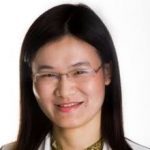
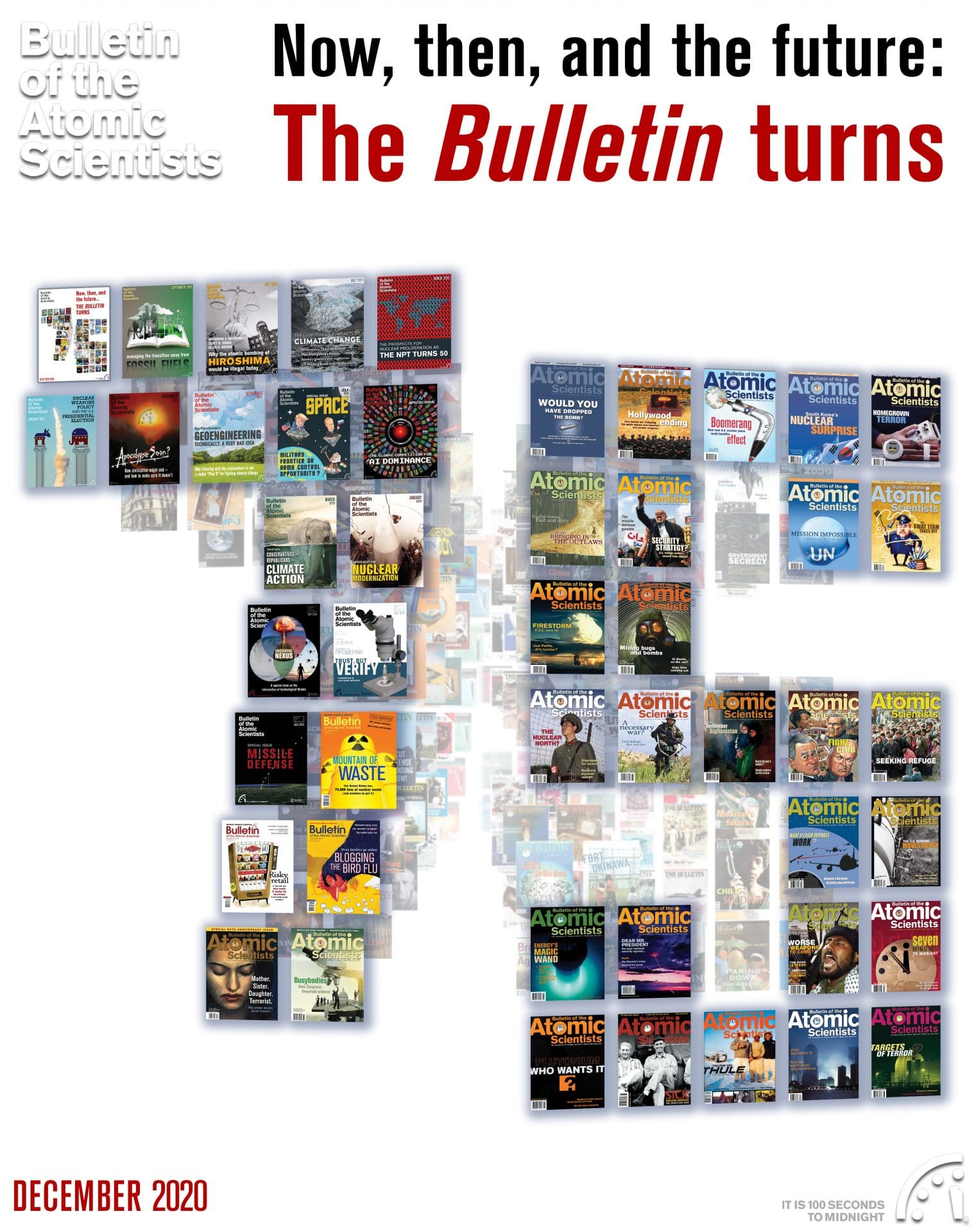
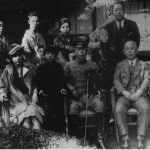

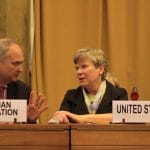
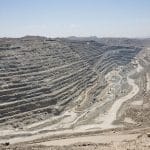
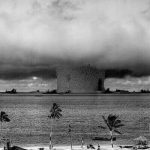
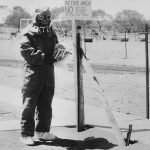
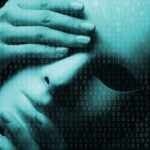
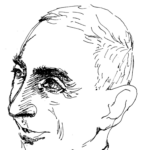

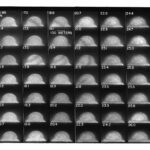

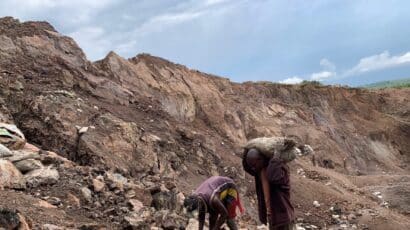
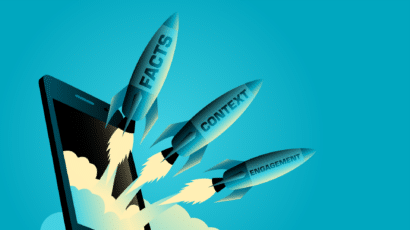
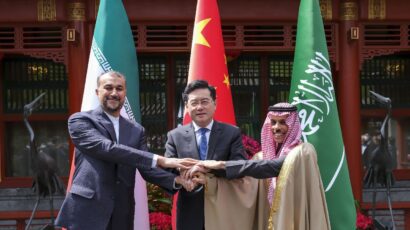



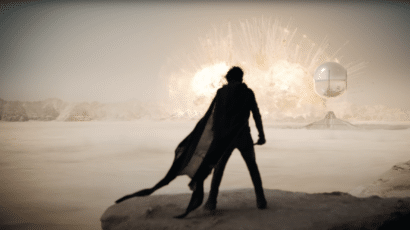
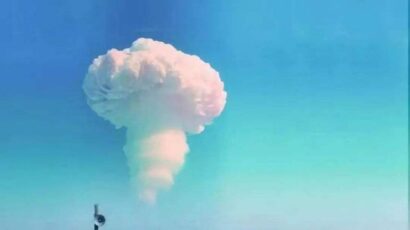
Thank you, Yangyang Chen, for a truly beautiful philosophical reflection, and for sharing facts about China, which remains an enigma to us in the U.S.
Thank you for this Yangyang, may we find a path within ourselves that will prove human life on earth to be more than a blip in the history of the universe… but it’s not looking good.